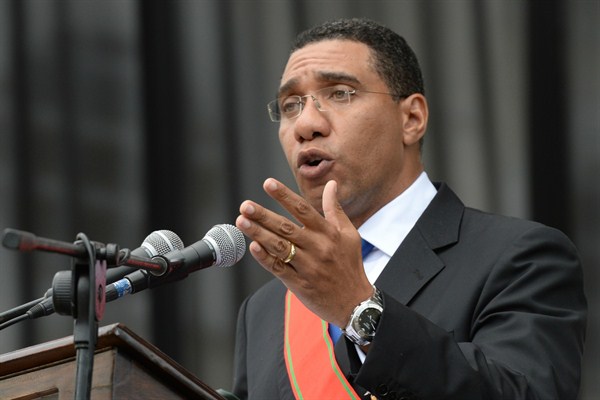Last week, Andrew Holness, leader of Jamaica’s opposition Labour Party, was sworn in as prime minister, after winning the Feb. 25 elections on an anti-austerity platform. In an email interview, Jermaine McCalpin, a lecturer at the University of the West Indies, discussed the election and politics in Jamaica.
WPR: What were the major policy priorities of the outgoing People’s National Party (PNP) government, and what was its track record while in office?
Jermaine McCalpin: The PNP-led government made economic stability one of its primary goals. It successfully negotiated several International Monetary Fund-backed loans, improved the country’s credit rating and lowered interest rates. While the PNP-led administration reduced unemployment from 16.3 percent in July 2013 to 13.5 in October 2015, youth unemployment continues to be a challenge, currently standing at 39 percent. The expansion of the tourism sector with the construction of several new hotel projects was successful, and infrastructure development continued, with the PNP overseeing the completion of another leg of the massive North-Coast Highway project.

